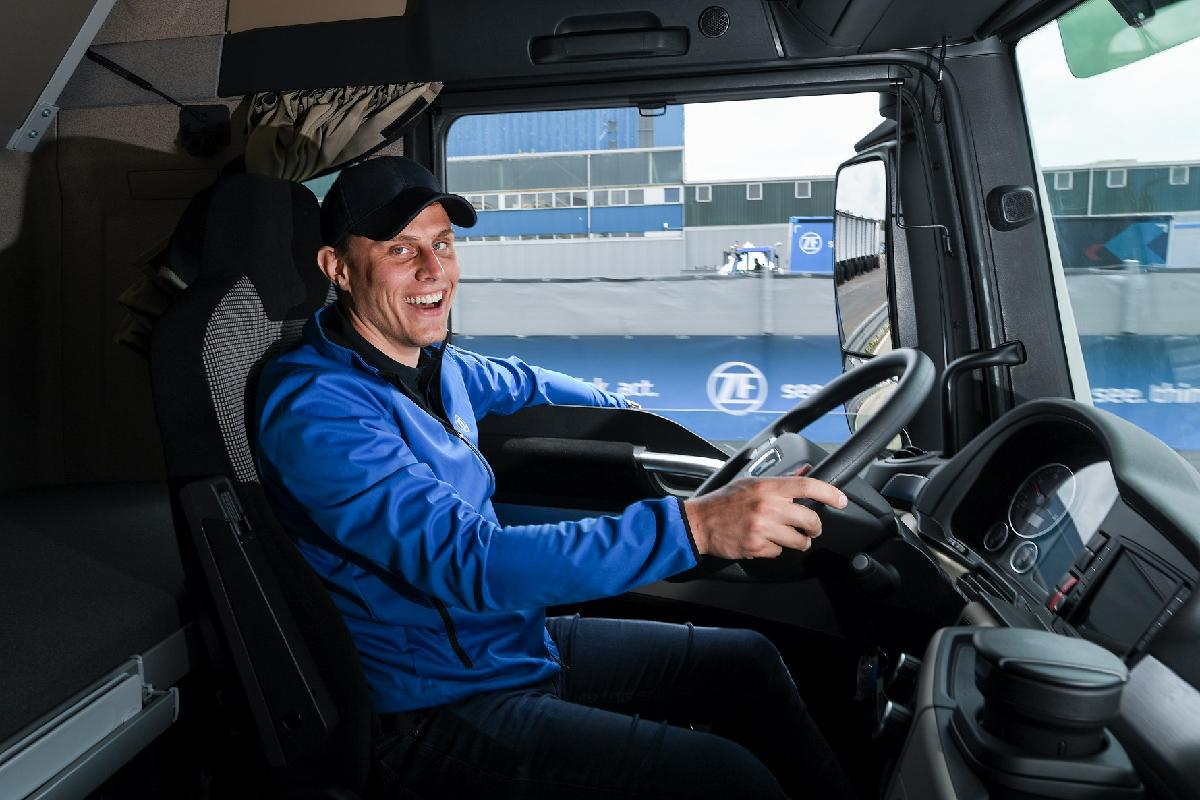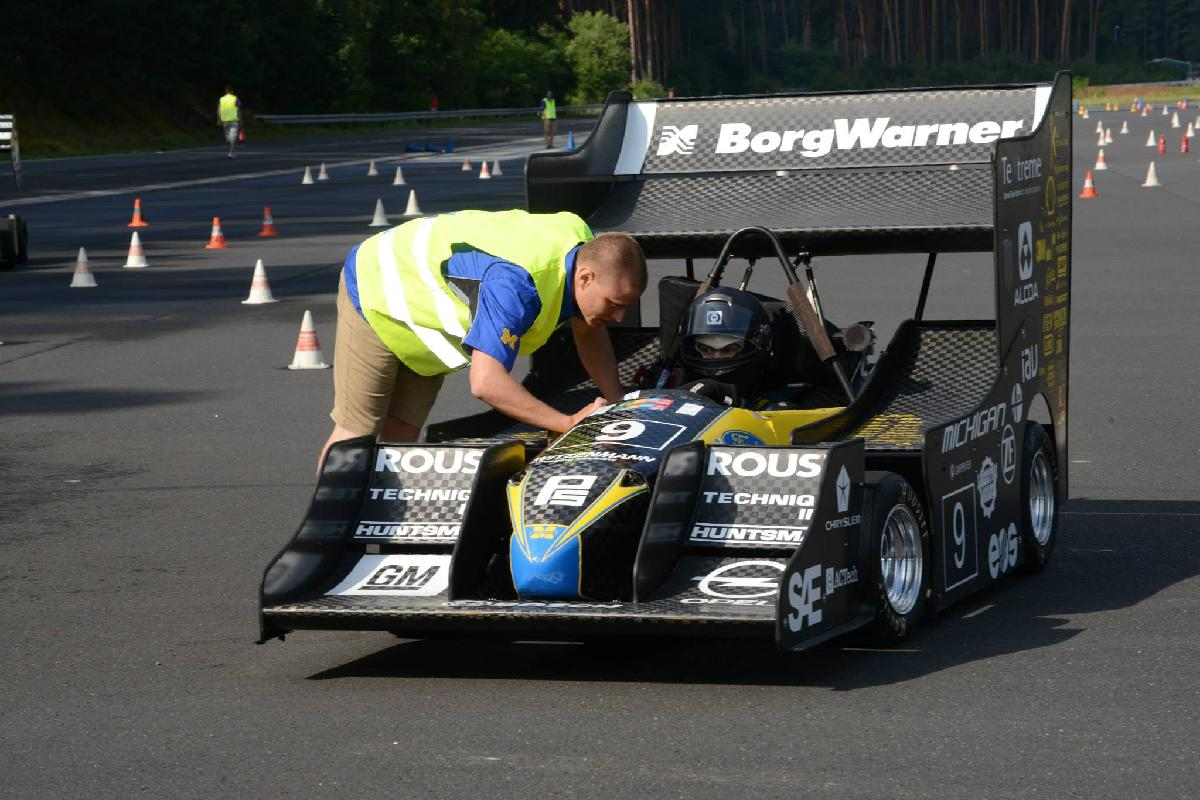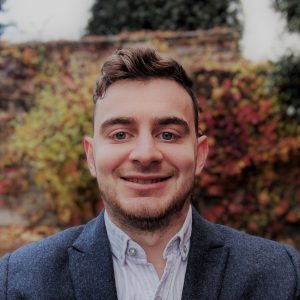Where Are They Now? – Joe Martin, ZF Friedrichshafen AG
Today we’re talking to Joe Martin from ZF Friedrichshafen AG. As a student at the University of Michigan – Ann Arbor between 2010 – 2015, Joe participated in Formula SAE and Formula Student Germany.

What Did You Learn in the competition?
Why did you choose to get involved in the competition?
I’ve always loved cars. From when I was a little kid, playing with Hotwheels and reading in the most recent Car & Driver about the newest and coolest cars of the day, to driving my first car, making small repairs to it, and learning about the various systems as I upgraded them, to the day I wrote Aston Martin asking what I needed to do to work for them someday (study mechanical engineering). It was clear my college days were going to be spent studying how to design and engineer in the automotive industry. As I was looking at universities one of the key criteria for me was already the Formula SAE program. Not only did the University of Michigan have a prestigious engineering program, but the team was also ranked #1 in the world at the time and I was in awe of the facilities at the Wilson Student Team Project Center.
What was your role on the team?
I spent all of my undergraduate time on the team. In my first year, I learned how to successfully manufacture parts for the car on the mill and lathe (my preferred machine). This was the necessary basis for me to know how to design parts that were manufacturable and understand the various components of the car. I also supported in preparing the car for testing, doing setups and maintenance, and presenting the drivetrain system at the design event at Formula Student Germany. This led to me being the head of the drivetrain system the following year. As I then had an internship with BMW Motorsport in Munich during our key design period I took a role as project/sponsor manager and helped the drivetrain lead from abroad. The following year I was the team captain, focussing on the overall team strategy, recruiting, sponsorship, etc. In my final year of studies, I had more of an advising role and worked with the technical director on a side project to develop some carbon fiber rims.
How did you use MATLAB/ Simulink in the competition and/or academic work?
“I used MATLAB while designing a new transmission in various aspects: linking into our vehicle lap sim model for evaluating various gearing options, evaluating various design parameters in the gear profile and gearing design, evaluating various design parameters in the shifting geometry.”
MATLAB and Simulink were a regular part of our coursework at U of M, particularly in lab courses. Here we were primarily using basic functions and writing small scripts to simplify our calculations, or building simplified models to describe physical systems. We also used a bit of the signals processing toolbox.
On the Formula SAE team, we used MATLAB and Simulink extensively for various modeling activities. I used MATLAB while designing a new transmission in various aspects: linking into our vehicle lap sim model for evaluating various gearing options, evaluating various design parameters in the gear profile and gearing design, evaluating various design parameters in the shifting geometry. I also used MATLAB to develop a program and user interface to partially automate our engine dynamometer testing results evaluation.
How Did the Competition Help You Find a Job?
“This high-level, abstract understanding of complex systems is a skill set that is highly sought after in the automotive industry these days.“
Do you think the skills you gained using these tools have helped you in your professional career? If so, how?
Definitely, in fact, in 2019 I wrote an article highlighting why I think Formula Student provides such a great talent pool for companies: https://www.linkedin.com/pulse/why-formula-student-great-talent-pool-joe-martin/
I will highlight a few of the main points here:
- As the teams are generally consisting of 8-15 core members, you are already working in a small business with all of the aspects of running a business, not just designing components on the car. You need to work in teams, recruit and train new students, plan and meet project deadlines, drive system and component development from conception through to production and assembly, and so much more. This breadth of knowledge can’t be gained in the classroom.
- The design space is almost infinite. The rules leave so much room for innovation. A lot of entry-level engineers work on components or systems that are already highly specified and the freedom left in the Formula Student design space allows students to explore many different technologies, methods, and skills.
- A strong systems engineering background. Successful teams understand which parameters have the biggest influence on their chances of winning, are capable of breaking those down into high-level vehicle goals ruthlessly chased by each sub-system, and then get all the way down to the design of the nuts, bolts, gears, ICs, etc. This high-level, abstract understanding of complex systems is a skill set that is highly sought after in the automotive industry these days.

© Formula Student Germany
Did your hands-on experience in the competition help to prepare you for your first role in the industry?
” My understanding of many different aspects of cars from the Formula Student team certainly helped me navigate through all the different divisions and products in such a big company as ZF.”
My first role in the industry was a further extension of my desire to understand all aspects of the automotive industry. I joined the International Trainee Program at ZF and spent the next 18 months in many different projects and locations learning about the workings of the company both within engineering, and outside. My understanding of many different aspects of cars from the Formula Student team certainly helped me navigate through all the different divisions and products in such a big company as ZF. Furthermore, my experience throughout the entire development process and the knowledge gained from running a small company as the team captain helped my management skills and ability to look into the areas outside of engineering.
After that, I moved into a purely engineering role for commercial vehicle steering and definitely benefitted from the strong systems engineering mentality (albeit not yet sharpened to industry-standard processes, methods, and tools).
What Are You Working On Today?
In your current role at ZF do you use MATLAB/Simulink?
Not anymore, I have moved into a project management role. However many of my colleagues still use it and I used it quite often when I was still in my engineering roles. Simulink is used very heavily at ZF in developing models of systems such as steering systems, for use in various HiL tests, as well as developing rapid prototype software for use in the early development of various control systems.
What big project you are working on right now?
My project team is focused on the vehicle-level integration of various ZF sub-systems such as braking, ADAS, transmissions, etc. On the one hand, I have customers upgrading their vehicle platforms to meet the upcoming GSR requirements in the EU which come into force in 2024. This is a huge effort on both sides and the project team is working diligently to ensure we meet the SOP. On the other hand, I work together with our product segment lead and business development colleagues in further pushing our strategy forward and developing new products and features based on these integrated systems.
Key Takeaways
“Having a great resume, good practical and academic experience is a big part of the puzzle but a lot of getting work done is interacting with other people and knowing how to find the right person to solve problems. “
What advice would you give young engineers seeking employment post-grad?
Build your network. Reach out to alumni from your school, from your student team if you are part of one, to your professors. Having a great resume, good practical and academic experience is a big part of the puzzle but a lot of getting work done is interacting with other people and knowing how to find the right person to solve problems. Your network will help you in applying for jobs, but it will also help you in being effective at your job!
Is there anything else that you would like to add?
I volunteer as the head of the design event at Formula Student Germany. If you are alumni from a Formula SAE or Formula Student Team and would like to support us at the design event in Hockenheim please reach out to me!










댓글
댓글을 남기려면 링크 를 클릭하여 MathWorks 계정에 로그인하거나 계정을 새로 만드십시오.